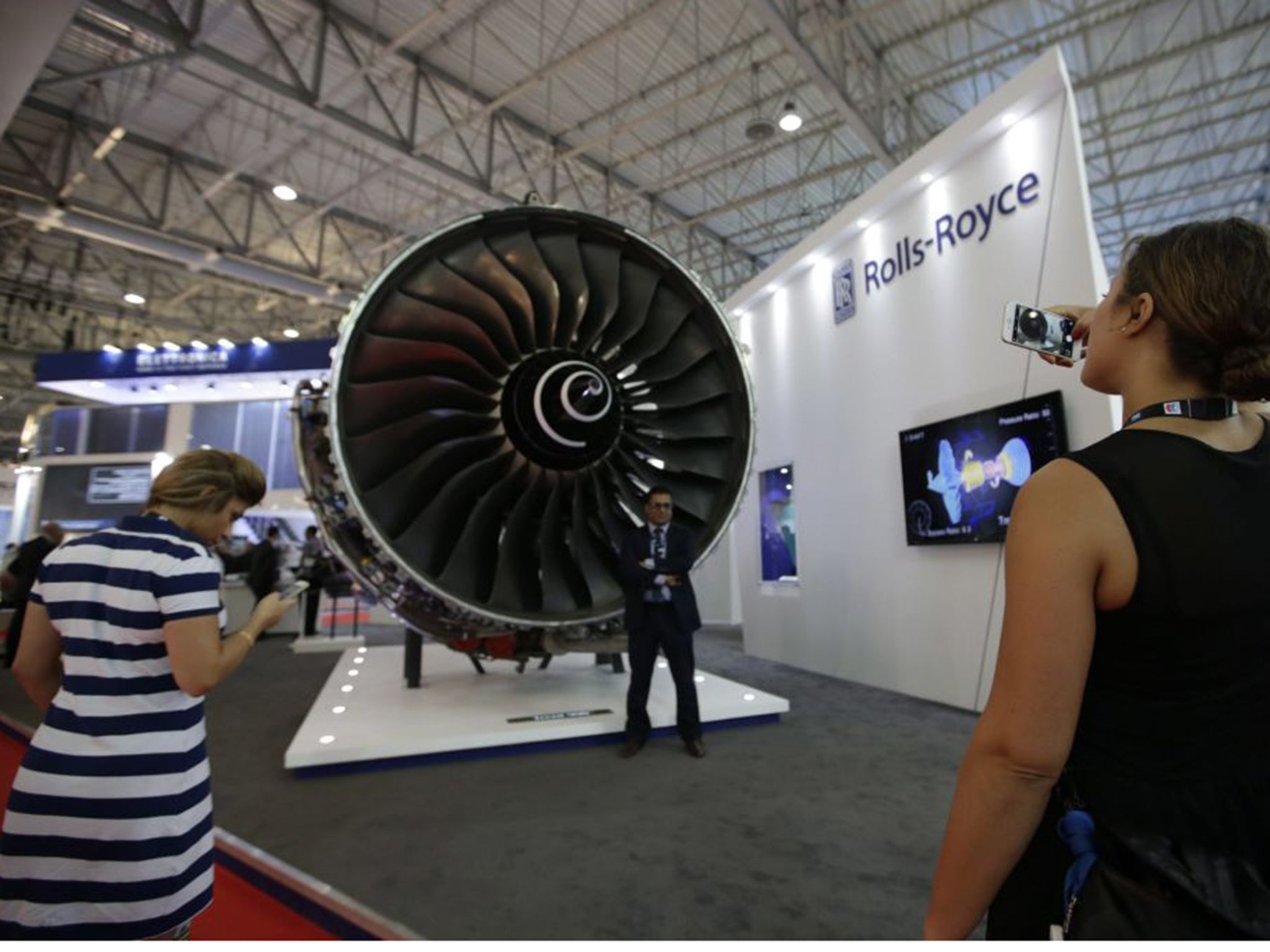Rolls-Royce warning puts activist investor in driving seat
Shares routed and hedge fund’s board hopes rise as profit forecast is set £350m lower

The Rolls-Royce profit engine has blown a fuse again after the engineering giant had to slash earnings forecasts by a third – putting it at the mercy of a US investor trying to bag a seat on the board.
The company, the world’s second-largest manufacturer of airplane engines, will put its coveted dividend under review after predicting that full-year 2016 profits will be £350m lower than previously anticipated.
Shares in the FTSE 100 group, led by new chief executive Warren East, ended the day 19 per cent down at 536.50p, wiping more than £2bn off its market value.
The company has promised to slash up to £200m of costs per year by 2017 to help it get back on a surer footing. “We are carrying too much fixed costs. It’s totally unacceptable for a world-class business. We need to make significant changes,” Mr East said.
“I want to add some simplicity and make sure there is greater accountability in the business. Market changes are going to happen anyway but they are having too much impact.”
The turbulence at Rolls-Royce has provided plenty of ammunition for one of its top shareholders and a critic of the company, the US-based activist investor ValueAct Capital, which owns a 5.4 per cent stake.
Mr East revealed that ValueAct had formally requested a seat on the board.
The San Francisco-based hedge fund, which has gone into battle with corporate giants such as Microsoft and American Express, has previously attacked the company and put pressure on it to spin out parts of the group.
“I’m not going to talk about details, but as most people know we’re discussing issues with them,” Mr East said.
Rolls-Royce, which sold off its marque car division in 1973, is one of Britain’s blue- chip manufacturing giants and employs more than 54,000 people across the world, with 12,000 of these based at its headquarters in Derby.
Mr East was appointed chief executive in July – replacing the former boss John Rishton – and was forced to issue a profit warning just two days into the job after the group ran aground. He also had to cut short a £1bn stock buyback programme.
The business had previously told investors that profits next year would be £300m lower than forecast – but this was revised to £650m. The update was the company’s third profit warning of 2015 – two under Mr East’s watch – and follows on from four warnings made in 2014.
The retirement of the Boeing 777 plane used by Malaysia and Singapore Airlines, which use Rolls-Royce’s Trent 800 engines, will leave it up to £150m short as it loses maintenance fees for the engines.
A further £100m hit will come from smaller corporate jets. Marine profits, which are exposed to the offshore oil and gas market, will also fall by up to £100m.
Mr East will give investors more details about cost cuts at the end of the month. The company has already shed around 3,000 jobs from its aerospace and marine units.
ValueAct: A different breed of investor
ValueAct Capital stands on a quiet street made up of art galleries just a stone’s throw from San Francisco’s Union Square – a million miles away from Rolls-Royce’s gritty head office on a Derbyshire industrial estate.
The hedge fund, which has rejected the traditional cluster of hedge funds on Wall Street, sees itself as a different breed of investor.
Founded by former Fidelity fund manager Jeffrey Ubben, ValueAct tries to work closely with institutional investors and shuns the aggressive style pioneered by investors such as Bill Ackman.
Being nice has proved successful – a study by The Wall Street Journal found it was the most successful activist at grabbing board seats. It won a seat on the board of Microsoft despite owning just 1 per cent. Rolls-Royce could be next.
Subscribe to Independent Premium to bookmark this article
Want to bookmark your favourite articles and stories to read or reference later? Start your Independent Premium subscription today.

Join our commenting forum
Join thought-provoking conversations, follow other Independent readers and see their replies